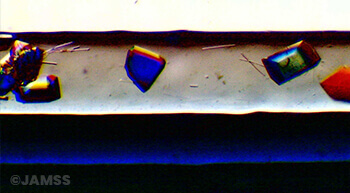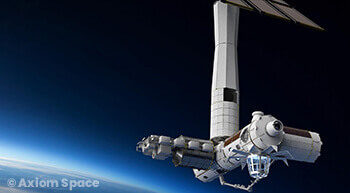| Duration | Presenting author | Affiliation | Presentation title |
|---|---|---|---|
| 10 min | Naohiro Sato | Japan Manned Space Systems Corporation | Opening remarks |
| 10 min | Ferenc Darvas | InnoStudio Inc. | Opening remarks |
| 15 min | Martin Braddock | Sherwood Observatory | Drug discovery and development – what has space ever done for us? |
| 15 min | Paul Reichert | Merck | Merck Microgravity Crystallization Processes |
| 20 min | Q&A (live) |
Martin Braddock – Drug discovery and development – what has space ever done for us?
The unique environment of microgravity offers much for the discovery of new targets and their validation by both experimental drug candidates and approved medicines. This presentation will review the drug discovery and development process and provide examples of where the microgravity assist has opened up new opportunities for the treatment of both terrestrial disease and the possible maintenance of astronaut health with a longer term view of colonisation of other worlds. Finally, we will glimpse into a possible future of AI-assisted drug discovery and the potential acceleration of regenerative medicine.
Paul Reichert – Merck Microgravity Crystallization Processes
Crystallization processes have been widely used in the pharmaceutical industry for the manufacture, storage and delivery of small molecule and small protein therapeutics. The identification of crystallization processes for biologics and particularly monoclonal antibodies (mAbs) have been prohibitive because of their size and the complexity of their overall structure. There remains a challenge and an opportunity to extend the knowledge of crystallization processes known for small molecules and investigate the use of microgravity as a research tool to identify the key variables for mAb crystal growth. The International Space Station National Laboratory (ISS NL) offers a unique opportunity to perform bio-medical research and investigate pharmaceutical processes. Merck Research Laboratories in collaboration with the Center for the Advancement of Science in Space (CASIS) performed crystallization experiments with Keytruda (pembrolizumab) on SpaceX Cargo Resupply Mission 10 to the ISS (SpaceX-CRS-10). By taking advantage of microgravity effects such as reduced sedimentation, minimal convection currents and reduced molecular diffusion rates, we identified conditions to produce crystalline suspensions of uniform particle size distribution (30 micron) in high yield versus control ground experiments which produced a bimodal population of 10-100 microns particles. The flight crystalline suspensions were also less viscous and sedimented faster than the comparable ground based crystalline suspensions. These results can be applied to produce crystalline suspensions in earth processes which reduce sedimentation and use temperature to induce and control crystalline mAb processes. These studies are designed to develop means to improve the safety, adherence, compliance and quality of life for patient & caregivers. The results of these experiments as well as opportunities to advance biomedical microgravity research will be disclosed.
Find out more about the webinar series:

Applications and case studies
27 January 2022

Commercial opportunities & perspectives
24 MARCH 2022




